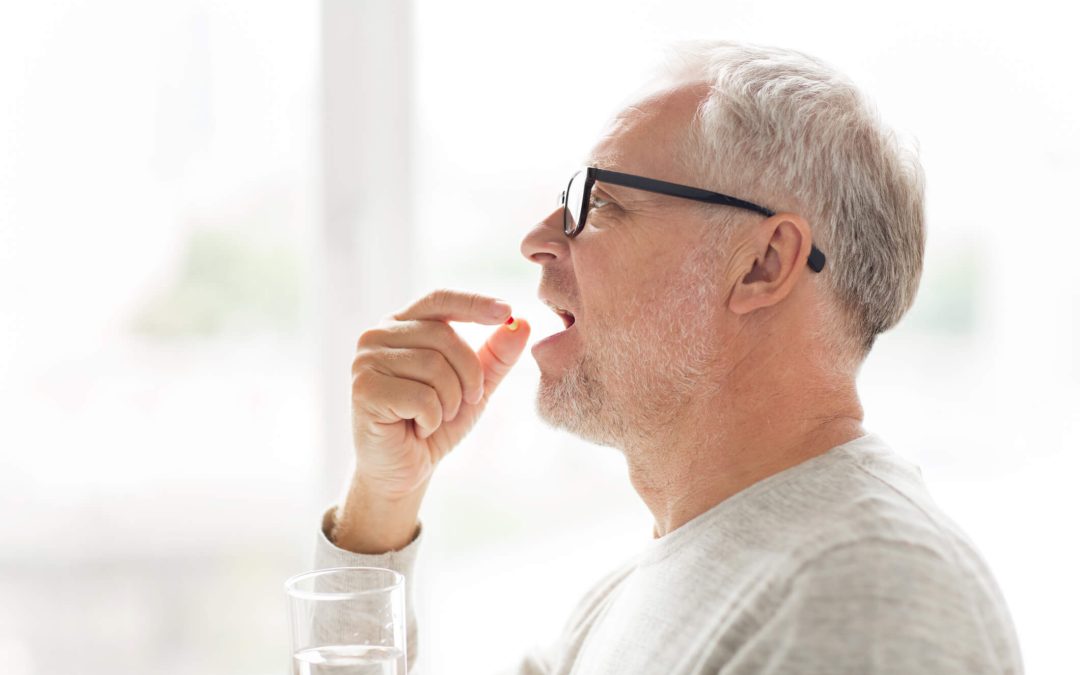Adderall is a widely used prescription medication for individuals diagnosed with ADHD and narcolepsy. While it is effective for improving focus and managing symptoms, some people report unexpected side effects, including hair loss. This has led to growing concerns about the link between stimulant medications and hair follicle loss, prompting further research in dermatology. Factors such as dosage, care, and different types of treatments play a role in understanding these effects. Access to accurate information and real-life cases can help individuals make informed decisions about their hair health using Adderall.
Understanding how Adderall and similar drugs impact the body, particularly the hair growth cycle, can help individuals identify potential causes of hair thinning and explore treatment options. Doctors rely on various sources to examine the type and use of stimulant medications in hair-loss cases. Studies have explored the content of these medications and their potential to cause hair follicle damage. This article will discuss the possible connections between Adderall and hair loss and the steps you can take to maintain healthy hair.
Understanding Adderall and Its Effects on the Body
Adderall is a central nervous system stimulant composed of amphetamine and dextroamphetamine. It works by increasing dopamine and norepinephrine levels in the brain and improving focus, attention, and impulse control. However, like many prescription medications, it can lead to side effects, which may vary from person to person. Certain behaviors associated with stimulant use, along with concerns about addiction, have raised questions about its long-term effects. Experts often advise patients on managing these risks while respecting their rights. The result of prolonged use may differ for someone based on their health, lifestyle, and genetic factors.
Some of the most common side effects of Adderall include:
- Loss of appetite
- Weight loss
- Increased heart rate and blood pressure
- Anxiety and stress
- Sleep disturbances
While hair loss is not explicitly listed as a common side effect, there is growing evidence that some individuals experience hair thinning, shedding, or pattern baldness while taking stimulant medications like Adderall. Throughout treatment, there are several ways these side effects might manifest. Some people have turned to various apps and tools to track the quality of their hair health while exploring the benefits of different treatments. One key factor is understanding how individual responses to medications can vary.
How Does Adderall Affect Hair Growth?
The human hair growth cycle consists of three main phases:
- Anagen (growth phase) – Hair actively grows for 2–7 years.
- Catagen (transitional phase) – Hair stops growing and detaches from the follicle.
- Telogen (resting phase) – Hair remains in place until it sheds and is replaced by new growth.
The hair growth cycle can be disrupted when the body experiences stress, nutrient deficiencies, or hormonal imbalances. Some individuals using Adderall may develop telogen effluvium, where hair enters the shedding phase prematurely due to physical or emotional stress. An app can help track all the results of such conditions, helping individuals monitor changes in hair health. The fact remains that the number of people experiencing hair loss due to hormonal changes is significant, and in some cases, abuse of stimulant medications can exacerbate these issues.
Factors Contributing to Hair Loss While Taking Adderall
Several factors could explain why some people experience hair thinning or shedding while using Adderall: hormone changes, increased physical activity, or the body’s recovery process. The prevalence of hair loss in individuals using stimulants has been highlighted in various case studies, suggesting that these factors may play a significant role in the development of hair shedding.
1. Stress and Cortisol Levels
Stimulants like Adderall can increase stress levels, releasing cortisol, a hormone known to impact hair follicles. Chronic stress can push more hair into the telogen phase, increasing hair shedding. Addressing these concerns requires careful consideration of the needs of individuals and taking each step with proper action. References from studies and dermatology experts can provide insight into the different forms of treatments available. It’s essential to consult a doctor for guidance on managing hair health and avoiding potential skin issues caused by prolonged stress.
2. Nutritional Deficiencies
Adderall often suppresses appetite, causing individuals to eat less than usual. This can lead to nutritional deficiencies in vitamins, minerals, and nutrients essential for hair health. A lack of iron, biotin, zinc, and protein can weaken hair follicles and contribute to thinning. In adults, these deficiencies may also impact other aspects of health, such as sex drive. Maintaining integrity in nutrition is vital, and following proper sourcing guidelines can help individuals avoid these deficiencies. Research institutions have shown that addressing nutritional gaps can support well-being and prevent further hair thinning.
3. Changes in Blood Flow and Circulation
Amphetamines can impact blood pressure and blood flow to different body parts, including the scalp. Hair follicles may become weaker over time if they do not receive adequate nutrients and oxygen. According to journals and associations focused on dermatology, a diagnosis of hair loss due to stimulant use is often backed by case reports and studies. This has been observed not only in adults but also in children who are prescribed medications like Adderall.
4. Hormonal Imbalances
Stimulant medications such as dopamine and norepinephrine affect neurotransmitters, influencing hormonal balance. Some individuals experience hormonal fluctuations that impact the hair growth cycle, potentially contributing to hair loss. According to a case report, performance data from studies under professional supervision suggests that these hormonal changes may lead to hair thinning. The FDA has acknowledged the potential side effects of stimulant medications, including hair loss in some cases.
5. Medication Side Effects and Drug Interactions
Some medications, including Concerta, Strattera, Ritalin, and other stimulant drugs, have been associated with hair shedding. Individuals with a history of alopecia, trichotillomania, or other hair loss conditions may be more susceptible to these side effects. Researchers from an association of dermatologists have provided examples that show how these medications can form a potential risk factor for hair loss, particularly in men.
Recognizing the Signs of Hair Loss from Adderall
Hair loss can occur gradually or suddenly. Some people may notice increased shedding, while others may see visible thinning in some scalp regions.
Common signs to watch for include:
- Increased hair in your brush or shower drain
- Thinning around the temples or crown of the head
- A widening part or receding hairline
- Changes in hair texture (brittle, weak strands)
If you are experiencing hair shedding or thinning, consulting a dermatologist or healthcare provider can help determine the cause and recommend appropriate treatments.

Neograft Hair Restoration in Orange County California provides effective treatments for hair loss caused by Adderall and other factors.
Treatment Options for Adderall-Induced Hair Loss
If you believe Adderall is causing hair thinning, there are several steps you can take to manage and possibly reverse the condition.
1. Consult a Healthcare Professional
A doctor, dermatologist, or healthcare provider can assess whether your hair loss is related to Adderall, Hair Loss During Pregnancy, or other underlying factors such as nutritional deficiencies, stress, or genetics. They may recommend a case study review, blood tests, or a combination of treatments to address the issue.
2. Improve Nutrition and Supplements
Since vitamin deficiencies and nutrients can contribute to hair loss, consider adding more nutrient-rich foods to your diet. Essential nutrients for hair health include:
- Biotin – Supports hair regrowth and scalp health
- Iron – Prevents anemia-related hair thinning
- Zinc – Aids in hair follicle function
- Protein – Strengthens hair structure
- Omega-3 fatty acids – Promotes scalp hydration and reduces inflammation
If your diet lacks these nutrients, consider supplements to help restore hair health.
3. Minoxidil and Other Hair Loss Treatments
Minoxidil, a popular over-the-counter treatment, may help stimulate hair regrowth. Other treatment options include prescription medications, shampoos, and therapies like platelet-rich plasma (PRP) injections.
4. Manage Stress Levels
Since stress and anxiety can contribute to hair shedding, relaxation techniques such as meditation, yoga, and cognitive behavioral therapy (CBT) can be beneficial.
5. Consider Switching Medications
If Adderall is causing significant hair loss, speak with your doctor about alternative stimulant medications like Concerta, Strattera, or lower dosages of amphetamine-based drugs.
Final Thoughts: Should You Be Concerned About Adderall and Hair Loss?
While Adderall and other stimulant medications may contribute to hair thinning in some individuals, the exact cause is often a combination of factors such as stress, nutrition, and hormonal changes. If you are concerned about hair shedding, scalp health, or other side effects, consult a dermatologist or healthcare provider for a thorough evaluation.
Taking proactive steps like improving diet, reducing stress, and exploring alternative treatment options can help maintain healthy hair growth while continuing ADHD or narcolepsy treatment. Switching to a different medication may also help reduce the risk of hair thinning.
For those looking for advanced solutions, Neograft Hair Restoration Orange County offers cutting-edge treatments to help restore natural hair growth. Book a consultation today to explore your options.
Frequently Asked Questions
Many worry about the effects of lifestyle choices and products on their hair. Below are answers to some frequently asked questions:
Can Stress Cause Hair Loss?
Chronic stress can trigger telogen effluvium, a condition in which many hair follicles prematurely enter the shedding phase of the hair growth cycle. This results in noticeable hair thinning or shedding, often appearing several months after the stressful event. Managing stress through relaxation techniques, exercise, or therapy can help mitigate its impact on hair health.
Does Wearing Hats or Tight Hairstyles Cause Hair Loss?
Constant pressure from tight hairstyles, such as ponytails or braids, or from wearing tight hats can lead to traction alopecia. This condition occurs when the hair follicles are repeatedly pulled, causing damage and potential hair loss. Over time, the stress on the follicles may result in thinning or permanent hair loss in the affected areas.
Does Shampooing Too Often Cause Hair Loss?
Frequent shampooing can remove the scalp’s natural oils, leading to dryness and irritation. This disruption in the scalp’s natural balance can weaken hair follicles and hinder hair growth. Over time, this can contribute to hair thinning or increased shedding.
Can Hair Dye Cause Hair Loss?
Overusing hair dye, particularly those with strong chemicals like ammonia and peroxide, can weaken the hair shaft, making it more prone to breakage. These chemicals can also irritate the scalp, leading to inflammation and hair follicle damage. Over time, this damage can contribute to thinning or excessive hair loss.
Can Lack of Sleep Cause Hair Loss?
Insufficient sleep can elevate stress levels, which may increase the production of cortisol, a hormone that affects hair follicles. Disrupted sleep also interferes with the body’s natural repair processes, including those that support hair health. As a result, chronic sleep deprivation can contribute to hair thinning or excessive shedding over time.
Does Weight Loss Cause Hair Loss?
Rapid or significant weight loss, mainly caused by inadequate nutrition or extreme dieting, can disrupt the body’s balance and lead to telogen effluvium. This condition pushes hair follicles into the resting phase, causing them to shed prematurely. While hair loss is typically temporary, addressing nutritional deficiencies and maintaining a healthy weight can help restore normal hair growth.
Does Pollution Cause Hair Loss?
Exposure to air pollutants, such as toxins and particulate matter, can negatively impact hair follicles and scalp health. These pollutants can cause inflammation, clog hair follicles, and disrupt the natural hair growth cycle. Over time, this damage can contribute to hair thinning or increased shedding.
Can Vitamin Deficiencies Lead to Hair Loss?
Yes, vitamin deficiencies like Vitamin D, B12, and biotin can weaken hair follicles and lead to hair thinning or shedding. Vitamin D helps regulate the hair growth cycle, and a lack of it can cause hair to fall out prematurely. Similarly, B12 supports red blood cell production, and biotin strengthens hair strands, and deficiencies in these vitamins can lead to brittle hair and increased hair loss.
Does Excessive Heat Styling Cause Hair Loss?
Excessive heat styling can cause hair loss by damaging the hair shaft, leading to weakened strands that are more likely to break. Over time, frequent use of high-heat styling tools can lead to thinning and reduced hair growth.
Can Pregnancy Cause Hair Loss?
Yes, pregnancy can lead to hair loss due to hormonal fluctuations, particularly during the postpartum period when many women experience temporary hair thinning. This is often a temporary condition that resolves within 6-12 months as hormone levels stabilize.



Recent Comments